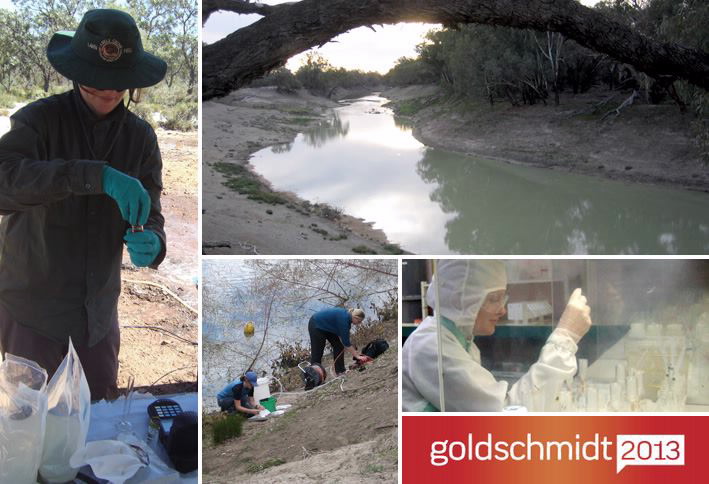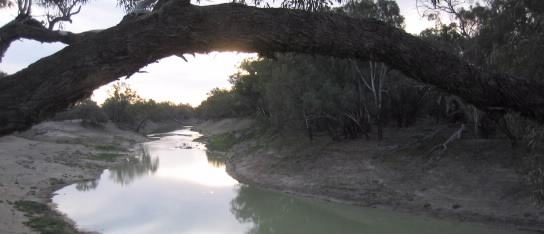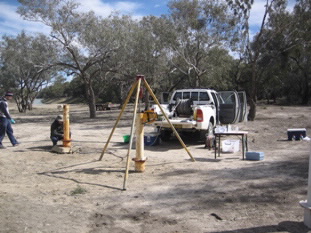Dr Karina Meredith’s use of an isotope normally associated with planetary studies to understand the Darling River’s complex water systems has earned her recognition at this year’s Goldschmidt Meeting, the biggest geochemical conference in the world.

Using lithium isotopes, the hydrogeochemist from ANSTO has been looking at ways to better illuminate the chemical characteristics of ground and surface waters along the Darling River.
The Darling has been in poor health, suffering from overuse of its waters, pollution from pesticide run-off and prolonged drought. The aim of Dr Meredith’s study was to find better ways to understand the source of groundwater recharge and the migration of water through a network, which is the third longest in Australia and a source of nourishment for many of New South Wales’ major regional centres.
Groundwater recharge is an important process to understand. It’s defined by the movement of water downward from surface water to groundwater and is an important process for sustainable groundwater management as what’s abstracted should be less or even to what is recharged into the system.
To get additional information to help better understand this earthly problem, Dr Meredith turned to isotopes normally associated with the study of planets.
“We used lithium isotopes that are not often used in water research in the hope it would give us extra information about the health of our river systems.
“Lithium isotopes are typically analysed on solid phase materials including meteorites in Earth and Planetary studies.”
The results of Meredith’s work was the publication of the first ever set of Li values in any groundwater system in Australia highlighted by the discovery of deeper, older groundwater systems.
The research scientist who works on ANSTO’s Isotopes for Water Project had her results published in July, at which point the Newtown local could have been proud of her efforts.
 |
The Darling River snakes its way through New South Wales and has been in poor health suffering from overuse of its waters. |
A month later though, Meredith’s world was in a spin following an email from the Executive Editor of Elsevier with the news her work would be one of only five reports in the world to be highlighted in a new app and showcased at the 2013 Goldschmidt meeting as part of the Geochimica et Cosmochimica Acta Editor’s Choice.
The Goldschmidt Conference, now in its 19th year and run annually discusses the recent advances in Geochemistry including topics as diverse as the formation of the solar system, volcanic hazards, past climate variability and the search for new mineral deposits.
 |
| Groundwater sampling |
The meeting is attended by over 3,000 scientists from across the world and has been hosted at a range of esteemed venues, including the home of the World Economic Forum in Davos. This year it is being held in Florence, Italy.
ANSTO would like to congratulate Dr Meredith on this fantastic achievement and the work she is doing to help inform opinion makers on ways to better manage our water ways.
You can view the Geochimica et Cosmochimica Acta Editors’ Choice, and full selection at the following link.
View the research paper.
Published: 30/08/2013


